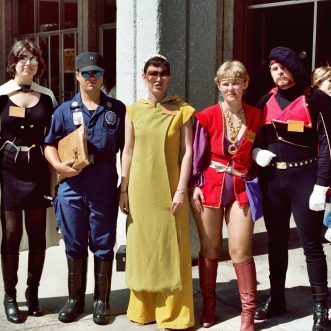
Dismantling the E-myth
In his E-myth books, Michael Gerber identifies three key roles in a business: the entrepreneur, who drives the vision for the business; the technician, who does the work, and the manager who acts as a bridge between them, planning and organising the work of technicians to achieve the entrepreneur’s vision.
If the vision is shared by everyone, do you then need managers?
I don’t think so, but you do still need management – a way for the technicians to know what they have to do, and how well they are achieving the vision, so they can work out for themselves how best to move forwards.
This is great news for small business owners, because I’ve only ever met one person who wanted to be a manager.
If the vision is explicit and shared, and technicians manage themselves, do you then need an entrepreneur?
No, but you do need entrepreneurship – a way for technicians to see new ways to deliver the vision profitably.
So, if you can push both management and entrepreneurship down to the people who actually do the work, what happens to the entrepreneurs who founded it?
Their baby will have grown up, to be independent, autonomous with their original vision still in its DNA.
They get to choose what they do next.








